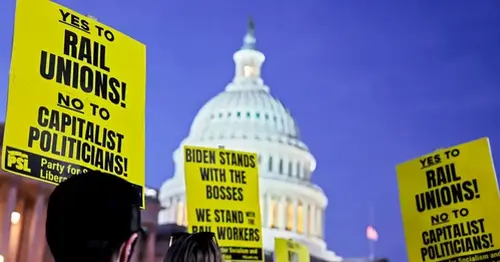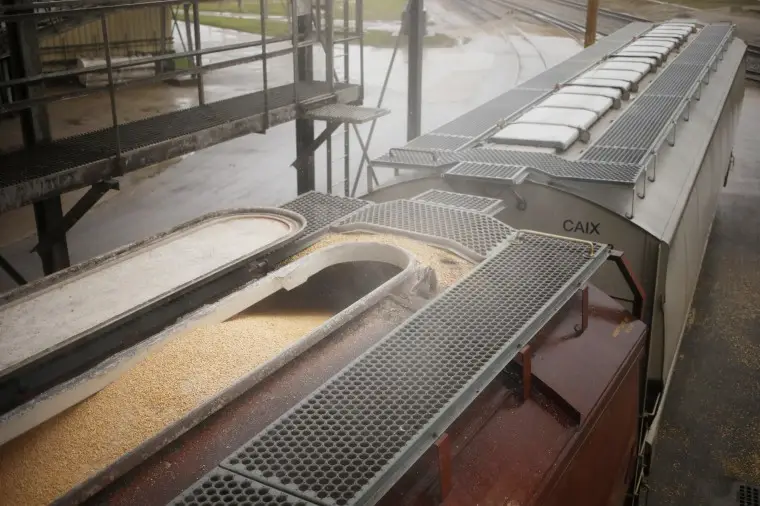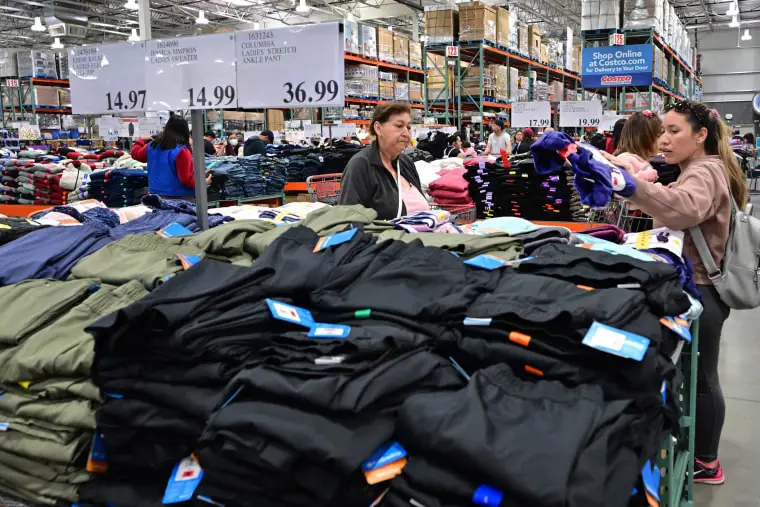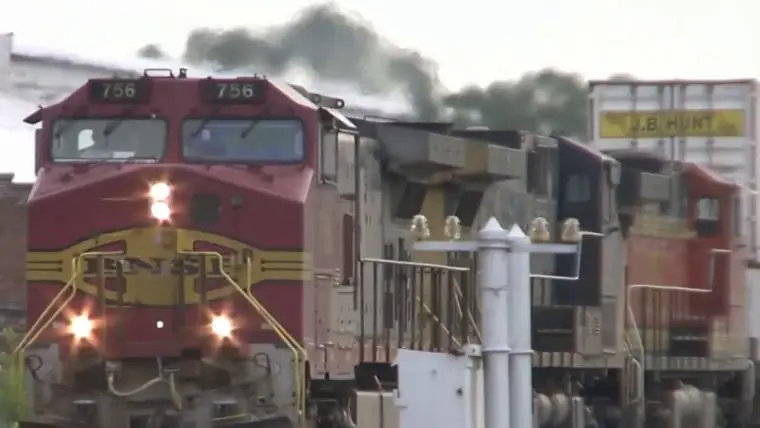
How a rail strike could upend the economy
WASHINGTON — President Joe Biden, lawmakers and business leaders are warning of an economic crisis should the country’s railroad workers go on strike as planned next week — a move that would have far-reaching effects across the economy.
Railway workers would go on strike shortly after midnight Dec. 9 if a deal isn't reached before then. Biden is urging Congress to intervene.
Without congressional intervention and with talks between workers and railway operators seemingly at a standstill, companies across the economy are bracing for a complete shutdown of freight and passenger railway systems. With a shortage of truck drivers, companies wouldn’t be able to shift their shipments, stranding a vast majority of goods.
House passes legislation to avoid rail strike
Dec. 1, 202202:03Just how damaging a strike would be to the economy would depend on its length, but a strike of even a few days could lead to a cascade of events that would disrupt supply chains for weeks, industry officials warn. The White House projects that as many as 765,000 people could be put out of work in the first two weeks.
"Businesses integral to our normal day-to-day life, like food and fuel manufacturers, will feel the impact immediately and will quickly trickle down to consumers," said Jeffrey Hausman, the chief product officer at the supply chain management firm Samsara.
Here are some of the ways the U.S. would feel the effects of a railway strike:
Drinking water
One of the most direct impacts of a rail shutdown would be a potential shortage of clean drinking water for millions of households that rely on publicly owned water systems.
Treatment plants use chlorine and other chemicals to clean the water that eventually flows out of the tap, and the vast majority of those chemicals are transported around the country by rail from factories to distribution centers.
“A stoppage of rail service in the United States would have a catastrophic effect on the ability of water utilities to treat drinking water and wastewater and to perform other water treatment services,” trade groups representing the water sector said in a letter to the White House this month. “This would present a significant threat to human health and to the health of the environment.”
Even the threat of a strike risks disrupting deliveries. Because chlorine is a hazardous material, companies have said they will start winding down shipments as early as a week before a possible strike to ensure no chemicals are left on the railways when operations would shut down. In September, when there was another threat of a rail strike, there was a steep drop-off in chemical shipments the week before.
Food supply
About 25% of grain in the U.S. is transported by train, and food producers ship 1.2 billion carloads a year of grain products, such as flour, soybean oil, meal, distillers grains and ethanol, according to the National Grain and Feed Association.
Not being able to move such products would cause a drop in U.S. food exports when countries increasingly rely on the U.S. food supply after the disruption of exports from Ukraine.

It would also limit ranchers’ ability to feed their livestock, with some regions relying solely on rail for their shipments of grain, said Michael Seyfert, the president and CEO of the National Grain and Feed Association.
“We can’t have our exports dropping due to a rail strike, and we also have a number of areas of the country where livestock producers have to ship in their feed via rail. It’s really the only way they can get it, so we’d have severe shortages of feed in a very rapid period of time,” Seyfert said on a call with reporters.
Farmers and grain producers are trying to pre-position supplies to prepare for a shutdown, but they are constrained by limited storage space, Seyfert said. Grain processors typically have three to 10 days of storage availability, after which they would have to stop production until the products are moved out to the mills or ethanol refineries.
A strike would also disrupt the distribution of fertilizer used on crops, as about half of the fertilizer in the country is transported by rail. Like chlorine, fertilizer is a hazardous material that would have to be moved off the railway system starting next week if there was the possibility of a strike. For each day of the strike, it would take five to seven days for the supply chain to catch up given the limited storage at production facilities, said Corey Rosenbusch, the president of the Fertilizer Institute.
“If this is not resolved quickly, fertilizer manufacturing would have to be curtailed,” Rosenbusch said on a call with reporters. “This would be absolutely devastating for fertilizer distribution.”
Retail
A strike wouldn’t have a significant impact on holiday shopping, because most retailers have already stocked their stores, warehouses and distribution centers for the holiday shopping rush.

But it could cause major disruptions throughout the supply chain, particularly at seaports. When cargo comes into the U.S. on ships, it is often unloaded onto trains that take the containers to distribution points to be further transported by trucks, retailers have said.
With railways shut down, the country could return to scenes like those seen last year, when containerships were lined up offshore, unable to get into ports to unload their goods, leading once again to empty store shelves and U.S. manufacturers’ being unable to get the parts and components they need from overseas.
“A rail strike, coupled with historically high levels of inflation, could wreak financial havoc and inflict catastrophic harm to American businesses, workers, consumers and the U.S. economy," Matthew Shay, the head of the National Retail Federation, said in a statement Monday. "We are in peak holiday shopping season, and it is essential that retailers and other businesses are able to rely on these vital supply chain partners."
Fuel
A rail shutdown could once again drive gas prices higher just as oil has dropped to its lowest level since December because of the disruption it would cause to the shipment of ethanol, which is used in the vast majority of gasoline consumed in the U.S.
“Shutting down our rail system even for one day would have a significant impact on U.S. gasoline supply and could lead to higher prices for American consumers and businesses ahead of the holiday season,” Mike Sommers, the head of the American Petroleum Institute, told reporters Tuesday.
More than 70% of ethanol is transported by rail, and 25% of grain gets to ethanol processing plants by train, according to the Renewable Fuels Association.
Source: https://www.nbcnews.com/politics/economics/rail-strike-upend-economy-rcna59305







